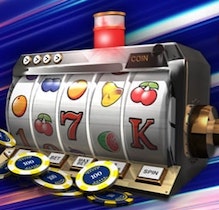Choosing The Optimal Strategy For Slots

We hate to start this article with bad news but slot machines are immune to any kind of winning strategies and systems. Moreover, if used unwisely, some strategies may even worsen the situation, leading to huge losses. When it comes to slot machines, optimal strategies seem to lose their power!
About RNG
Let’s try to clear up the question that bothers gamblers all over the world: Why strategies don’t work with slots? In fact, the answer lies on the surface.
If you know a thing or two about one-armed bandits, you must be aware that all combinations you see on a slot screen are created by a clever algorithm known as the “random number generator”. You must have heard this name, right? The random number generator produces millions of combinations per second. One of these combinations is transformed into the symbols you see on the screen. Note that the algorithm doesn’t “know” which combinations come with a payout and which ones don’t. Whatever strategy you use, it won’t affect the RNG in any way.
The algorithm works in a totally random way. There is no way a player can guess which combination will come up next, therefore no strategy can help you predict a lucky spin. If you ask us, it’s the total randomness of results that gives slots their unmistakable charm, don’t you agree? But let’s go back to the methods that are actively used by naïve players that have little experience with slots and gambling in general.
Martingale System
It needs to be said that the Martingale system was originally designed for roulette. Although this system mostly fails to significantly improve your winning chances at roulette, it still looks more suited for the “queen of casino” rather than slot machines. Since the Martingale system is very easy-to-follow, it can be applied to any gambling game and by any player, regardless of their skills.
Let’s take a look at how this system works. No rocket science here! First, you need to determine the size of your base bet. You make your base bet and spin the reels. If you win, you take your payout (while ignoring the Gamble feature, if there is any) and make the base bet again. If this time you lose, you must double your next wager.
As you see, the key rule is simple. Every time you hit an unsuccessful spin, you need to multiply your bet by 2.
Sooner or later, you’ll hit a winning combo, and your payout will cover all your previous losses and generate a profit equal to the size of your base bet.
The Martingale strategy seems very logical and reasonable so far, right? But unfortunately, it has one weak spot. If you hit an excruciating losing streak, you might gamble away your entire bankroll before you make a win. This is a very pessimistic scenario but it’s totally real! It can happen to any gambler. If your base wager is $3, imagine how much you’ll have to bet on the 10th losing spin! It’s not uncommon that the Martingale strategy sucks money out of the gambler’s pocket before they finally trigger a winning combo.
Anti-Martingale System
Disappointed by the risky nature of the Martingale strategy that often fails to deliver, gamblers switched to the opposite method called the “Anti-Martingale system”.
According to this system, the player must double their base wager following every successful spin and reduce their bet twice after every unsuccessful spin. Easy, right?
However, this method also has a vulnerability. Sooner or later, you’ll reach the minimum betting limit. For example, your base bet is $1. On the 3rd losing spin, you’ll have to reduce your wager to 12.5 cents. On the 4th losing spin, your bet will drop to 6 cents. There are very few slots that accept such tiny wagers. Moreover, what are you going to do after the 7th or 8th losing spin? This question remains unanswered.